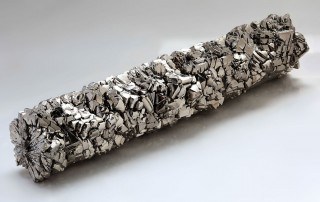Cremation: What Happens to the Metals in Your Body?
Before our death we can notify our loved ones of our preference for either burial or cremation.
Cremation is the process that converts human remains to ashes and mineral fragments through combustion and oxidation. The furnace used to disintegrate the corpse should reach temperatures up to 1,800 degrees Fahrenheit.
Some of us have metals in our body due to medical procedures we undergo in our lifetime. During cremation, the temperature of the furnace may not be hot enough to melt the metals in your body. For example, the melting points of certain metals commonly used by dentists and doctors are:
- Gold: 1,947 degrees Fahrenheit
- Titanium: 3,034 degrees Fahrenheit
- Steel: 2,500 degrees Fahrenheit
- Amalgam (mercury, silver, tin, copper, etc.): Varied
As you can tell, most metals found in the human body would survive the cremation process intact. So, what do crematoriums and funeral homes do with all of those metals?
Can you keep the metals?
You may wonder if you can request the metals that are recovered from the cremation process. The gold used in tooth fillings is often a “dental gold” alloy that will not survive the high temperatures of the furnace. It must be removed from the decedent’s teeth before the cremation process begins. A dentist must be called out to remove the gold filling. Sometimes the fee charged by the dentist is higher than the value of the dental gold extracted. Any other metal that survives the cremation furnace is usually given to a recycling company. Some funeral directors have told me that they would comply if someone wanted to keep the decedent’s orthopedic implants.
Effect on the metals during cremation
The metals that withstand the heat of the cremation, such as steel, titanium, and staples, are removed with magnets and other sorting methods before processing the burnt remains into ashes. After that, the methods of disposal differ by crematory but may include donation or sale to a medical recycling company.
Donating the metals
The crematorium may send the metals to a recycling company. The metal is sold and the proceeds are returned to the crematorium, or donated to a local charity. You can learn more at the websites for OrthoMetals and Implant Recycling, LLC. (If a metal recycling company is not used, the metal may be buried or discarded).
Future of cremation
In the future, a cremation service near you may offer an eco-friendly option: dissolving cadavers and flushing the remains.
If you are located in the Willamette Valley region of Oregon and would like to contact a local funeral home to discuss pre-paid planning for funeral services, here is a short list of local companies:
- Howell, Edwards, Doerksen with Rigdon-Ransom
- Johnson Funeral Home
- Virgil T. Golden’s Funeral Services
- Restlawn Memorial Gardens
- City View Funeral Home and Crematorium
(we do not recommend any particular funeral home, nor did we intentionally exclude any from the list above)

